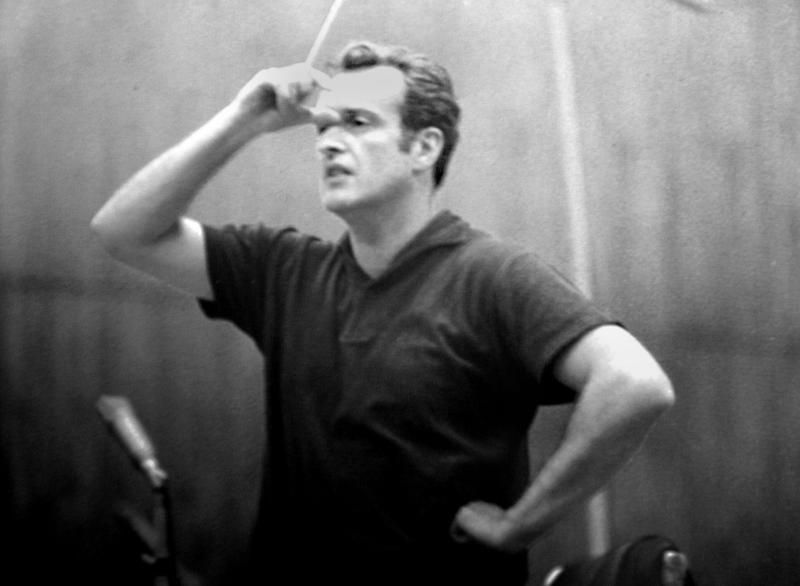Some more advice on how we want you to perform
mainLast week, we introduced you to a list of instructions sent out to performing artists by Concerts at Cratfield, an English chamber music series. In response to popular demand, here are a few more:

10 We like your performance – and the music – to speak for itself, with the minimum of interruptions and extras, from us as well as you. Unless you really have important information to give, we strongly prefer you not to introduce yourselves or to make any announcements, especially at the start of your concert.
11 If you will be uncomfortable keeping completely silent, then say a few words before you start your second piece, or as you return for the second half. But please do not repeat anything already in the printed programme, and avoid anything jokey or which could seem condescending. ‘How wonderful that you’ve turned out for music this afternoon, when there was the Wimbledon Men’s Finals on TV’: such clumsiness goes down like the proverbial lead balloon. If in doubt, check out what you’d like to say with me first.
12 If you do say anything, please speak loudly enough that everyone can hear you, at the very back of the nave as well as behind you on the altar seats. [Try speaking from the platform while you are rehearsing and ask me if I can hear you from the back row.]
13 If at the end of the second half you judge that the audience is eager to hear more, and if you have a short (not more than 5 mins) encore ready which will not detract from what you have just played, do go ahead; but please announce what it is. There’s no tradition that there should be an encore at all – and never at the end of the first half.
14 In acknowledging applause, please don’t forget the part of the audience sitting behind you.
Anything they’ve forgotten?





Are these also from Cratfield, or elsewhere ?
Cratfield
15 Gents : before entering our stage please check that your fly is fully zipped.
Make sure that your socks are long enough not to expose any flesh whilst sitting down.
Ladies: no provocative clothing please. Our audience goes right back to Victorian times and appreciates appropriate garments in not too bright colours.
16 As the church can be a bit chilly at times ( we have a damp problem ) please check with us the day before the concert and wear some extra layer of clothing in case of a fall of temperature. Due to fawlty electrics we cannot always heat the premises.
In case of a general electricity outage a sufficient amount of good quality candles will be supplied by our volunteers.
How shocking, a concert promoter intent on letting the music speak for itself!!!
Really struggling to see the issue with 12, 13 & 14. All valid, important points, all frequently ignored by performers.
Suspect anyone who thinks these things don’t sometimes need saying hasn’t promoted many concerts.
Am I alone in feeling that these “instructions” to performers for entertaining the plebs sordida are just a tad condescending (and unnecessarily verbose)?
It shouldn’t be necessary to say these things, but it is.
Our local conductor should have been a preacher, he is so in love with the sound of his voice. On many occasions, I have wanted to shout, “Shut up and play!”
It has never been a bad idea to check that your fly is zipped before going onstage.
I don’t like artists talking to me from the stage. I can read programme notes. If I want a lecture, the Music Department at the University has some open ones, or I could take a course. Just get on with it, and thanks, Cratford, for making sure we don’t get this sort of talking-down talking-to when we attend your things..
CDH, since you post on this blog, I’m assuming you know quite a bit about classical music. I would argue that the talking from the stage is probably not for you – it’s for the brand new audience member who might need a little bit of assistance to understand the music, it’s context and also just to get to know the musicians on stage. Over and over in my conducting, administrations and audience members alike have expressed how much they enjoy it when the conductor or a musician from the orchestra greets them from the stage and tells them a little bit about what they are about to hear. Not everyone in the audience is an expert, and many people do enjoy this. I would suggest to those who don’t to think about the time where they had never heard a note of classical music and whether or not they would have wanted a helpful hand to guide them along.
In my experience of promoting concerts and other events for musicians, it’s better to have all instructions written down in a clear and accessible format, from directions to the venue to dress code and concert format. It saves people asking unnecessary questions. I don’t see an issue with these points – they may seem overly detailed but I think the promoter just wants to ensure everything is covered so that the concerts are successful and enjoyable
I don’t see any problem with these points either.
I would appreciate knowing what the encore is. It is rare that it is announced. Are we all supposed to be so musically knowledgeable that we would automatically know what it is? Or not care?
I like it when a conductor talks to the audience. Of course, it can be done well or not so well — just as with performances. It’s nice when the talk is brief, especially when I’m on stage waiting to play.
I like it when encores are announced, although it’s often difficult to hear the announcement. That said, I’ve whispered the name of the piece into the ear of a reviewer on more than one occasion (and been stumped other times).
47: Above all, you must have no personality or opinions. Spontaneity is not permitted. As far as we are concerned, you are a servant hired to entertain your superiors. You will enter and exit via the tradesman’s entrance. Engaging in conversation with the audience, most of whom know far more about music than do you mere performers, is strictly forbidden.